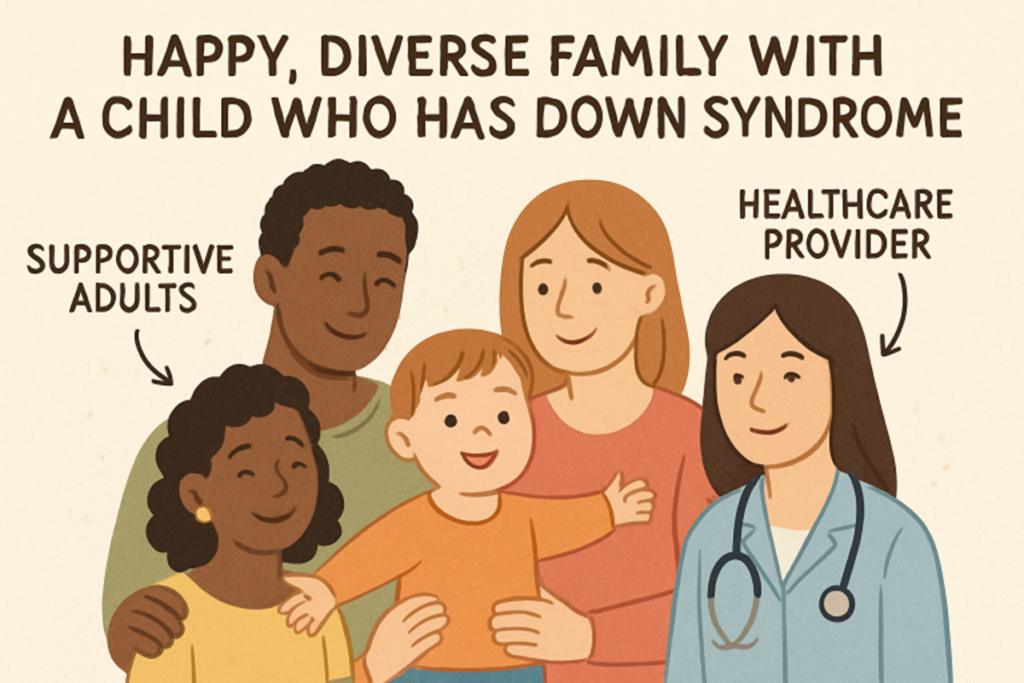Introduction
Receiving news about a Down syndrome diagnosis for your child is a life‑changing event that brings a wide array of emotions. From initial shock to acceptance, the journey is unique for every family. Down syndrome diagnosis can be a challenging moment, but understanding what it means and finding the right information can help you navigate the path ahead with confidence and hope.
Learning about Down syndrome, how it is diagnosed, and what resources are available can empower you to support your child from the very beginning. Familiarizing yourself with reliable organizations, medical options, and the stories of other families may also serve as a valuable guide during the early stages following a diagnosis.
Understanding Down Syndrome
Down syndrome, also referred to as trisomy 21, is a chromosomal condition arising when an individual has a full or partial extra copy of chromosome 21. This genetic difference leads to distinctive physical traits and developmental patterns, but the degree to which a person is affected can vary widely. Down syndrome is one of the most common genetic disorders in the world, occurring in about 1 in every 700 births, according to the CDC.
The presence of the third chromosome 21 influences both physical features and intellect, often resulting in mild to moderate intellectual disability. Early and tailored support can make a significant difference in each child’s developmental journey.
Types of Down Syndrome
- Trisomy 21, which constitutes about 95% of cases, means that every cell in the body contains three copies of chromosome 21.
- Translocation Down Syndrome: Here, an extra piece or entire chromosome 21 attaches to another chromosome. This kind accounts for 3% of cases.
- Mosaic Down Syndrome: The rarest form at 2%, where only some cells in the body carry the extra chromosome.
Diagnostic Process
Down syndrome can be identified during pregnancy or after birth using a range of tests and screenings.
Prenatal Screening and Diagnostic Tests
- Screening Tests: Blood tests and ultrasounds, such as the nuchal translucency screening, help estimate the risk of Down syndrome early in pregnancy.
- Diagnostic Tests: If there is a higher risk, more definitive procedures like chorionic villus sampling (CVS) or amniocentesis can examine the baby’s chromosomes directly.
Postnatal Diagnosis
After birth, doctors may recognize physical characteristics common in Down syndrome and confirm this through a karyotype test, which analyzes the baby’s chromosomes.
Emotional Impact on Parents
The realization that your child has Down syndrome can be daunting. Parents often experience feelings of grief, worry, or guilt, all of which are natural responses to the challenges of parenting. It is essential to acknowledge and process these emotions. Seeking professional guidance or joining support groups can help ease feelings of isolation. Numerous families have found comfort in connecting with others who are on a similar path, seeking advice and understanding through shared experiences.
Early Intervention and Support Services
Early intervention is vital for the optimal development of children with Down syndrome. Access to tailored services can significantly enhance a child’s abilities and overall quality of life.
- Physical Therapy: Focuses on building muscle strength and improving gross motor skills.
- Occupational Therapy: Develops everyday skills for independence, such as feeding and dressing.
- Speech Therapy: Addresses communication difficulties, enabling children to express themselves and understand language effectively.
The sooner these supports begin, the more beneficial they are for cognitive, emotional, and physical development. Community organizations and medical professionals can help guide families to the right programs.
Health Considerations
Children with Down syndrome have a higher likelihood of several health issues, such as congenital heart defects, hearing and vision problems, and thyroid disorders. According to resources from KidsHealth, regular medical check‑ups are essential for detecting and managing these conditions promptly. Working with healthcare providers experienced in Down syndrome helps ensure your child receives coordinated and comprehensive care tailored to their unique needs.
Building a Support Network
A strong support network is essential for families raising a child with Down syndrome. This network may include medical professionals, therapists, family members, educators, and local organizations. Connecting with groups both locally and nationally provides access to resources, advocacy, and community support.
Looking Ahead: Education and Inclusion
Resilient support and advocacy allow children and adults with Down syndrome to thrive. Inclusive educational settings, access to vocational training, and opportunities for community engagement foster independence and confidence. Family advocacy is crucial in promoting inclusive practices and ensuring that every child receives a well-rounded, supportive education in a welcoming community.
Conclusion
While a Down syndrome diagnosis may feel overwhelming at first, understanding the condition, seeking early support, and building a network of resources can empower parents and help their children reach their fullest potential. There is an abundance of information, professional help, and communities to support your journey—remember, hope and support are always available.

